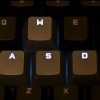-
Topics
-
pcboyguy ·
Posted in Troubleshooting1 -
Tact1cal ·
Posted in Power Supplies6 -
2
-
Spacer_v2000 ·
Posted in New Builds and Planning0 -
2
-
2
-
2
-
1
-
9
-
1
-
-
play_circle_filled

Latest From ShortCircuit:
This wireless router can’t possibly be good… can it? - Minion Routers














Create an account or sign in to comment
You need to be a member in order to leave a comment
Create an account
Sign up for a new account in our community. It's easy!
Register a new accountSign in
Already have an account? Sign in here.
Sign In Now